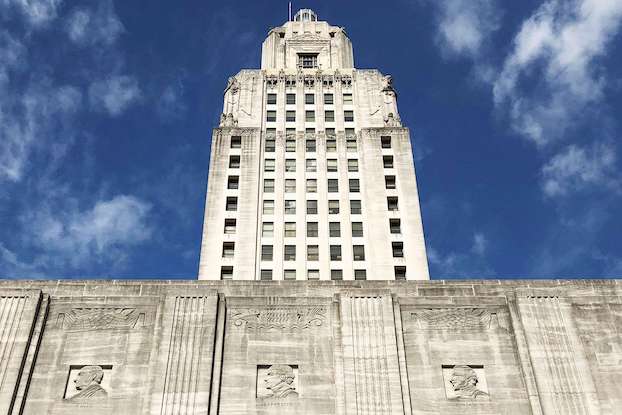Proposed bill would eliminate parole opportunity for most convicted in future
Published 9:37 am Thursday, February 22, 2024

- (Special to the American Press)
Lawmakers in Louisiana — a state that routinely has one of the highest incarceration rates in the country — are considering a bill that would eliminate the chance of parole for nearly all prisoners convicted after Aug. 1.
The legislation is one piece of the GOP-dominated Legislature’s conservative list of bills that are being discussed during a special session, in an effort to tamp down violent crime in the state. The tough-on-crime policies, which Democrats argue do not address the root of the issue, could overhaul parts of the Louisiana’s criminal justice system and public safety sector.
Among Republican priorities are toughening parole eligibility, in an effort to address recidivism rates and slow the “revolving door” of offenders who are released from jail only to return after committing another crime. The proposed sweeping legislative changes could determine how long certain incarcerated people remain in prison and when or if they would be allowed a second chance at freedom.
Among the proposals is a bill that would effectively eliminate parole for those convicted after Aug. 1, with few exceptions — including groups for whom it is constitutionally required, such as those who were sentenced to life terms as juveniles.
GOP state Rep. Debbie Villio, who authored the bill, said that under Louisiana’s current system, inmates are “released after serving a fraction” of their sentence — leaving victims and the public confused and “sorely disappointed.”
“For those of you who believe parole should be for a person 18 years or older who commits a heinous crime, there’s likely very little I can say that will make a difference. We simply disagree,” Villio said during a hearing Wednesday in a legislative committee, which advanced the bill. The proposal now heads to the House floor for debate.
Opponents argue that the legislation wouldn’t be effective in deterring crime, would cost the state millions as they continue to house inmates who could be paroled, and would create an atmosphere of “hopelessness,” with inmates having less incentive for good behavior and being involved in programs for success in the outside world.
Checo Yancy — who was incarcerated in the Louisiana State Penitentiary for 20 years and has since founded VOTE, which has led campaigns to expand voting rights for people on parole or probation — said the bill, coupled with other legislation being debated this session, would “lock people up and throw away the key.”
In addition, opponents say the margin for being let out early is already slim with a conservative Parole Board and many “hoops and hurdles” inmates must overcome to get a hearing.
Last year, 387 incarcerated people were granted parole, based on data in the Louisiana Board of Pardons and Committee on Parole’s annual report. Louisiana’s prison population last year was about 29,000, according to a report by the Louisiana Department of Corrections.
Other bills also could impact the possibility of inmates’ early release, including by reducing the amount a sentence can be lessened for good behavior and eliminating opportunities for post-conviction plea deals. Combined, the policies would ultimately require those incarcerated to serve the majority of their sentence in prison.
Spurred by violent crimes in urban areas and newly elected conservative Gov. Jeff Landry, who vowed to crack down on crime, lawmakers are considering a slew of tough-on-crime policies that could roll back reforms passed under the state’s former Democratic governor.
Among this session’s bills are proposals to expand methods to carry out death-row executions, harsher sentencing for certain crimes like carjacking, allowing the concealed carry of firearms without a permit, “qualified immunity” for law enforcement officers and mandating that 17-year-olds be tried as adults when charged with a felony.
While Democrats and Republicans have disagreed on their approaches to address crime in Louisiana — a state that in recent years has had one of the highest homicide rates in the country — they have agreed something must be done.
Lawmakers must conclude the special session no later than the evening of March 6.





